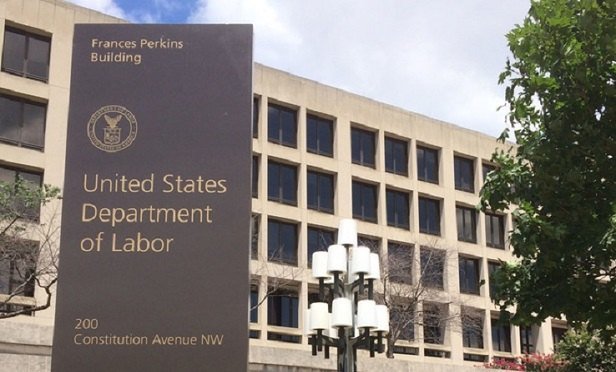 Last week, a federal judge in Texas reinstated the Trump administration's rule, finding that the Biden administration's actions violated the Administrative Procedure Act. (Photo: Mike Scarcella/ALM)
Last week, a federal judge in Texas reinstated the Trump administration's rule, finding that the Biden administration's actions violated the Administrative Procedure Act. (Photo: Mike Scarcella/ALM)
The ability of employers to classify workers as independent contractors instead of employees continues to be a political tug of war. To catch up:
The outgoing Trump administration issued a final rule clarifying when workers are independent contractors vs. employees. The rule applied an economic reality test that primarily considers whether the worker operates his or her own business or is economically dependent on the hiring entity.
Recommended For You
However, before the rule took effect his month, the Biden administration issued rules delaying and ultimately withdrawing the standard.
Last week, a federal judge in Texas reinstated the Trump administration's rule, finding that the Biden administration's actions violated the Administrative Procedure Act.
Now, Biden's Department of Labor said it may appeal that decision.
The distinction is important to both businesses and workers. Under the Fair Labor Standards Act, employees are entitled to minimum wage, overtime pay and other benefits. Independent contractors are not entitled to such benefits, but they generally have more flexibility to set their own schedules and work for multiple companies. The factors typically considered when making this distinction include:
- The employer's versus the individual's degree of control over the work;
- The individual's opportunity for profit or loss;
- The individual's investment in facilities and equipment;
- The permanency of the relationship between the parties;
- The skill or expertise required by the individual; and
- Whether the work is "part of an integrated unit of production."
The Texas decision hinged on procedure rather than the merits of the rule. Judge Marcia Crone sided with the Coalition for Workforce Innovation, a group that represents Uber, Lyft and other gig-economy businesses that rely on an independent-contractor business model. Along with several other business groups, the coalition sued the Labor Department, claiming that the Biden administration failed to engage in a proper notice-and-comment period as required.
Crone agreed with the business groups that the department didn't provide the public with a meaningful opportunity to comment because the notice-and-comment period for the "delay rule" was only 19 days.
"Although the APA does not mandate the minimum number of days necessary for adequate comment, circumstances warranting a comment period of less than 30 days are rare and generally require good cause," she said.
The court also found that the "withdrawal rule" was arbitrary and capricious because the Labor Department failed to consider potential alternatives to rescinding the Trump-era rule. The Trump administration sought to clarify the definition of "independent contractor" under the FLSA, because federal courts applied the economic-reality test inconsistently, Crone noted.
"The decision brings welcome clarity to businesses and others seeking guidance and transparency as to how the DOL would analyze the question of whether a given worker was an independent contractor or an 'employee' under the FLSA," according to the law firm Littler Mendelson. "It is unclear whether the department will appeal this decision, as well as whether it will engage in new rulemaking to propose a new independent-contractor standard."
Even if Biden's DOL revisits the ruling or engages in new rulemaking, employers must also abide by individual state regulations regarding worker classifications.
© Touchpoint Markets, All Rights Reserved. Request academic re-use from www.copyright.com. All other uses, submit a request to [email protected]. For more inforrmation visit Asset & Logo Licensing.







